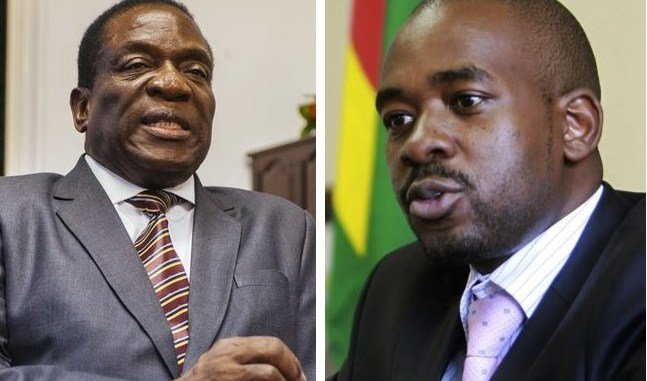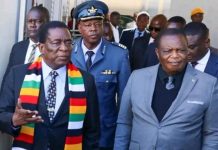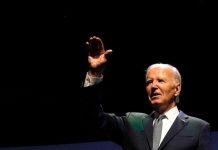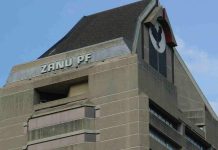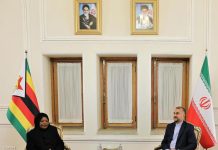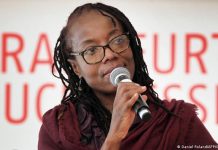BITTER political rivals, President Emmerson Mnangagwa and MDC’s Nelson Chamisa, again failed to meet face to face at a strategic national dialogue meeting convened by the Zimbabwe Council of Churches in Harare yesterday as the two leaders adopted hardline positions to talks.
Zimbabwe churches are seeking to broker talks between Mnangagwa and the MDC leader which would lay the basis for the recovery of an economy struggling from shortages of cash, fuel, medicine and some basic commodities including bread.
Disputed elections last year deepened the economic malaise, while a security crackdown on post-election protests in August and another ruthless suppression of demonstrations against fuel price increases of 150% last month drew comparisons with the dark days of former President Robert Mugabe’s regime.

Mnangagwa skipped yesterday’s prayer meeting after initially indicating that he would attend. He was instead represented by Defence minister Oppah Muchinguri.
Chamisa, who snubbed a meeting called by Mnangagwa at State House on Wednesday to discuss an agenda for talks aimed at tackling Zimbabwe’s crisis, attended and told the gathering that any talks without the MDC Alliance, would not solve the political crisis, which he said was at the centre of the current economic meltdown.
“I can assure you that there can be dialogue by any other party, but that dialogue will not resolve our issues because it’s a matter of what is the dispute. The dispute is a matter of the electoral result that was disputed. That electoral result that was disputed was not disputed by some of the political parties that are in agreement with President Mnangagwa. I disagreed with President Mnangagwa,” Chamisa said.
He told church leaders that he snubbed Wednesday’s talks because the convenor was not independent.
“Some would say, but Chamisa why didn’t you go to State House yesterday (Wednesday)? For a good reason, if we have to dialogue, we need an independent, respected and credible mediator between us. The church in this case is an appropriate convener,” Chamisa said to applause.
The MDC has maintained that unity and political stability will not be resolved unless the issue of Mnangagwa’s legitimacy is resolved. Chamisa’s dispute of the July 30 2018 electoral results has been backed by the European Union and Commonwealth elections observer reports which said the results were not traceable or verifiable.
“It should not be difficult for me to sit and meet with President Mnangagwa, and I am saying President not because our dispute has been resolved. He is president of his organisation, I am president of my organisation, so until that issue is resolved it becomes difficult for us to move things forward,” Chamisa said.
“I would have wanted him to be here. I have been ready yesterday, last year, I am ready today, tomorrow, the next hour if there is a room even at this hotel to meet with President Mnangagwa to resolve the issues affecting the people of Zimbabwe, because any minute longer is a life wasted, it’s time wasted.”
He added: “The bishops have acknowledged the source of the problem. The fundamental problem is that we need healing, we need peace, we need unity. We need to have a coming together of people and for that to happen, there has to be President Mnangagwa and myself.”
Mnangagwa, who was supposed to attend the prayer meeting, was represented by Muchinguri, who delivered a speech on his behalf.
The Zanu PF leader did not acknowledge the role of the church in leading the dialogue, but instead said the church should pray for peace and leadership in the country. Mnangagwa, in his speech, said the turbulence “was only temporary”.
“Therefore, the starting point and exception is that we must love ourselves, and our God-given country as a united people with a common destiny, government further perceives the church as the light that never wants, that guides our nation towards hope, optimism and a positive expectation,” he said.

